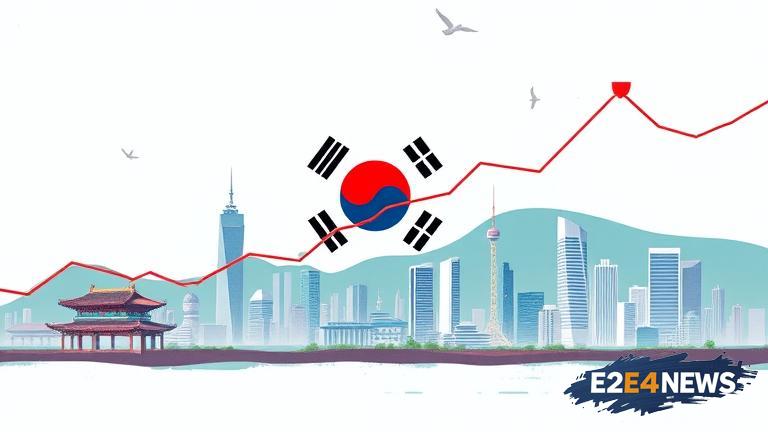South Korea’s economic growth has been experiencing a slowdown in recent months, with the country’s gross domestic product (GDP) growth rate decreasing to 2.2 percent in the first quarter of the year. This slowdown is attributed to the ongoing global economic uncertainty, particularly the trade tensions between the United States and China. The Korean government has been taking measures to boost the economy, including increasing government spending and implementing policies to support small and medium-sized enterprises. However, the effects of these measures have been limited, and the economy continues to face challenges. The country’s exports, which account for a significant portion of its GDP, have been declining due to the global trade slowdown. The manufacturing sector, which is a key driver of the economy, has also been experiencing a decline in production. The construction sector has been showing signs of recovery, but the growth is still slow. The government has been working to diversify the country’s economy, with a focus on emerging industries such as artificial intelligence and renewable energy. Despite these efforts, the economy is still heavily reliant on traditional industries such as electronics and automobiles. The country’s unemployment rate has been increasing, particularly among young people, which is a concern for the government. The government has been implementing policies to support job creation, including providing subsidies for companies that hire young people. However, the effectiveness of these policies is still uncertain. The country’s inflation rate has been stable, but the government is still concerned about the potential impact of global economic uncertainty on the economy. The Korean won has been fluctuating against the US dollar, which has affected the country’s exports and imports. The government has been working to stabilize the currency, but the task is challenging. Overall, South Korea’s economy is facing significant challenges, and the government needs to take more effective measures to boost growth and create jobs. The country’s economic growth is expected to continue to slow down in the coming months, and the government needs to be prepared to respond to the challenges. The global economic uncertainty is expected to continue, and South Korea needs to be proactive in responding to the changes in the global economy.
